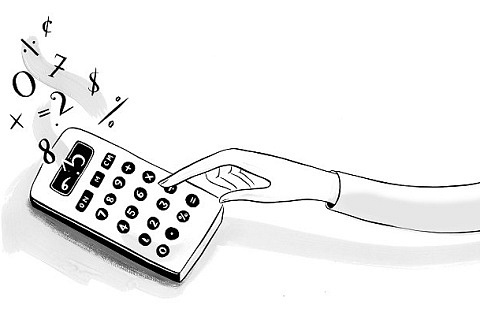Beliefs About Brain Training: Why They Could Be Hurting Us
This article was originally published in Psychology Today on Alan Castel’s blog, Metacognition and the Mind.
By Sheida Rabipour and Alan Castel
Many people love to solve puzzles, and often feel this can also lead to benefits in brain function. Many of us are familiar with the idea of training the brain to improve memory, attention, or problem solving abilities. Packaged as entertainment that is also good for you, brain training lures many of us with the promise of revamping mental function “in a way that just feels like games.” Whether to preserve the mental prowess of youth, treat chronic conditions without the risks of medication, or simply gain a competitive edge in school or at work, the allure of voluntarily improving brain function has driven a billion dollar industry that shows no sign of abating.
Ultimately, we want to know if these products are worthy of our time and money. The nuanced answer, however, is less than satisfying: the evidence is conflicting, and the data are not strong enough yet. Recently, a large group of eminent scientists wrote and signed a letter outlining what brain training has yet to deliver and were met with a counter-statement signed by a second group of scientists attempting to set the record straight. Regardless of this contentious debate, many of us – particularly baby boomers, but also younger adults beginning to appreciate the fickle nature of cognitive health – feel comforted, even inspired, when viewing ads for the latest brain training app or reading a new piece on the brain’s ability to change itself. But do these attitudes change based on critiques that dismiss brain training as bunk?
As it turns out, most of us are optimistic about the promise of brain training. A recent study found that even highly educated and critically minded people have relatively high expectations about the potential of brain exercises to improve cognitive functions such as memory, concentration, and performance in everyday activities. What’s more, these expectations do not necessarily decrease based on critical reports. Older adults may be especially prone to this, and report that their own intuitions are the primary factor driving their beliefs and attitudes towards brain training.
What might be driving these expectations? Optimism surrounding brain training software may also stem from the “technology effect,” where people generally expect technology to generate success. A recent study showed that people are more likely to invest in technology industries and implicitly associate technology – particularly new technologies – with success. The brain training industry fits well with this concept, drawing on the relative novelty of neuroscience and the idea that the brain’s structure and activity can change in response to lifestyle activities. These findings birthed the term “neuroplasticity” – a favorite catchphrase of brain training companies – and encouraged the development of interventions that showed initial success in certain populations (e.g., children and adults with ADHD, healthy seniors). Mostly, we may believe in the promise of brain training because we want to: Our study also suggested that people who were more familiar with the concept of brain training and who spent more time playing computer games (cognitive or otherwise) were more likely to have high expectations.
The overwhelming enthusiasm for brain training may represent a victory of marketing campaigns, but should give us pause. Our minds, once made up, can prove difficult to change, even with strong evidence to the contrary. In brain training, the potential for misuse and creation of unjustified expectations is significant. On the one hand, maintaining a positive outlook can be beneficial in many circumstances, and may even boost the effects of therapy. Expectations motivate us, and may account for at least some of the benefits reported in the scientific literature – not to mention the success of the commercial market. However, the extent and significance of such influences are ambiguous. Unrealistic expectations of success may drive people to buy into programs without considering other, potentially less costly and more appropriate, alternatives. If brain training cannot yield robust, tangible results, patients may lose faith in themselves or in their capacity to improve; the industry may be fated to the same disillusionment that has spawned mistrust in Big Pharma.
The appeal of brain training programs is strong; the evidence for their effectiveness less so. Research must now determine how our expectations interact with a program’s intended outcomes, and establish whether they are helping or hurting us. Meanwhile, the consumer’s job is to keep expectations consistent with what science has shown, rather than what the industry claims. Brain training may promote cognitive health or represent a drug-free alternative to medication. Optimism may turn out to be a powerful driver of positive brain training effects which clinicians can harness for the benefit of their patients. But we should not allow our hopes and expectations to color our ability to question claims. More screen time might have its own costs (perhaps especially for school age children), while something as simple as walking (sometimes away from a computer) has known benefits for memory and overall health, especially in older age. Before buying into computer-based brain training, we should be mindful of what we are actually gaining – or losing.
Copyright Alan Castel

































Leave a Reply
You must be logged in to post a comment.